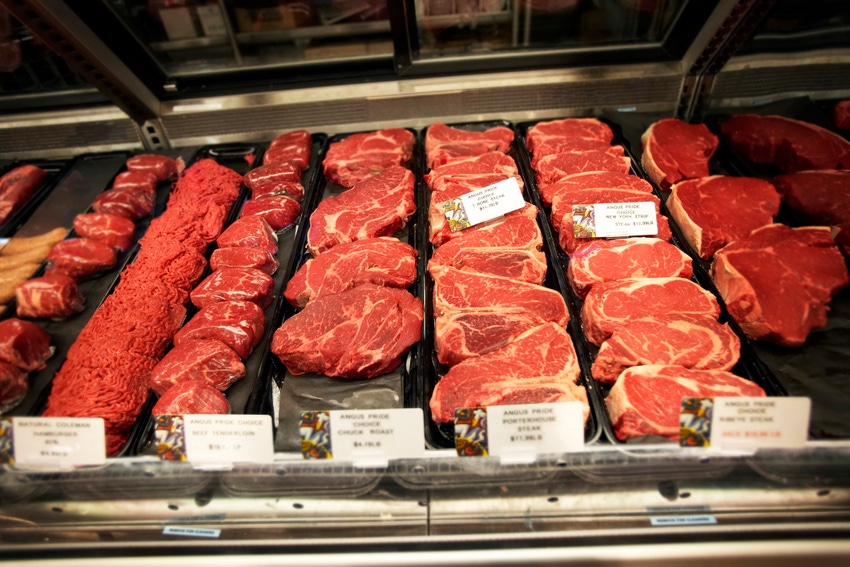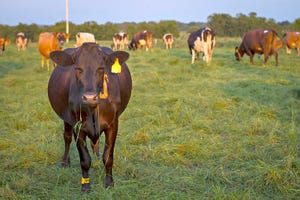Cattle groups call for halt of Brazilian beef imports
Recent cases of BSE concern U.S. cattle groups of potential harm to domestic consumers.

The National Cattlemen's Beef Association called on Secretary of Agriculture Tom Vilsack to immediately suspend all imports of fresh beef from Brazil to the United States over concerns of the country's reporting of its cases of bovine spongiform encephalopathy. R-CALF USA also followed suit, seeking action against Brazil in suspending imports of all beef products from Brazil, both fresh and pre-cooked.
In the letter to USDA, NCBA asked for a suspension until the agency conducts a thorough risk assessment and review of the processes that Brazil's Ministry of Agriculture, Livestock, and Food Supply uses to detect disease and other threats to consumers. NCBA also urged USDA to review Brazil's veterinary diagnostic laboratory system.
"It's time to keep Brazilian fresh beef out of this country until USDA can confirm that Brazil meets the same consumer and food safety standards that we apply to all our trade partners," says NCBA Vice President of Government Affairs Ethan Lane.
According to reports published by the World Organization for Animal Health, also known as the OIE, Brazil took more than eight weeks to report two confirmed cases of atypical BSE. The OIE requires countries to report within 24 hours for any animal disease event that could be of international concern for public health emergencies.
According to the letter, “Brazil enjoys the benefits of market access awarded to countries with the credibility of OIE’s negligible risk designation – credibility that is based on the timely reporting of BSE cases to the OIE. NCBA has serious concerns that the recent events are evidence that Brazil may lack credible food safety and animal health systems, and Brazil’s irresponsible behavior may pose a significant threat to the health and safety of the U.S. cattle herd.”
Lane adds, "NCBA has long expressed concerns about Brazil's history of failing to report atypical BSE cases in a timely manner, a pattern that stretches back as far as 2012. Their poor track record and lack of transparency raises serious doubts about Brazil's ability to produce cattle and beef at an equivalent level of safety as American producers. If they cannot meet that bar, their product has no place here.”
America’s cattle producers carry the scars of devastation from BSE, and we have worked diligently to restore the trust of consumers at home and abroad, the letter adds of the rebuilding required after the 2003 market impact of a BSE case in Washington state.
“The consumer trust we have worked so hard to build should not be jeopardized by any country that seeks to conceal the truth about animal health or food safety concerns or lacks the ability to provide an equivalent level of safety. American cattle producers and beef consumers deserve better, and Brazil must prove itself worthy of the U.S. seal of approval,” the letter adds.
NCBA’s request for a suspension only applies to fresh beef, however, R-CALF USA’s request is more expansive, seeking an immediate suspension of imports of all beef products, both fresh and pre-cooked, pending a U.S. investigation into Brazil’s food safety system and its veterinary diagnostic laboratory system.
The ranch group explains that the more expansive suspension is needed because beef-related heat processes are not capable of inactivating the BSE prion, and it is Brazil’s non-compliance with BSE reporting requirements that prompted the suspension request. R-CALF USA’s letter states “all imports of all beef potentially subject to BSE contamination must be suspended.”
About the Author(s)
You May Also Like



.png?width=300&auto=webp&quality=80&disable=upscale)

